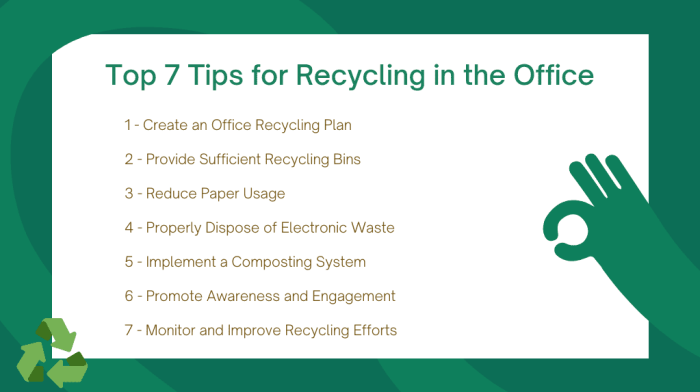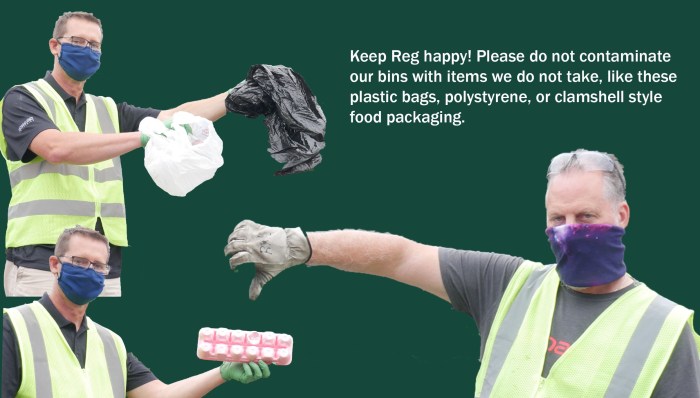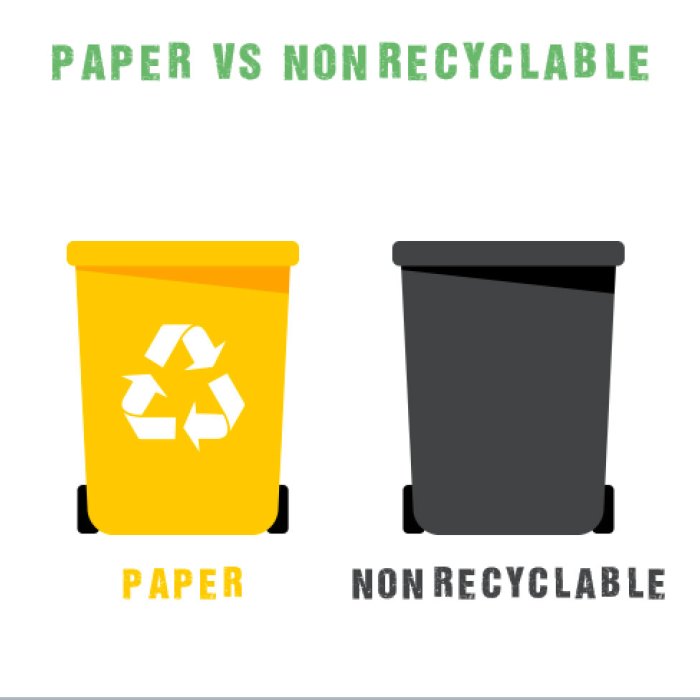Embark on a journey to master the art of proper recycling storage with these 4 essential tips. Dive into the world of eco-friendly practices and efficient waste management.
Learn how to make a real impact on the environment starting from your own home or office.
Importance of Proper Recycling Storage

Properly storing recyclables is crucial for the environment as it helps ensure that the materials can be effectively recycled and reused, reducing the strain on natural resources.
When recyclables are not stored correctly, they can become contaminated. For example, mixing food waste with recyclable materials can make the entire batch unsuitable for recycling. Contamination can lead to higher processing costs and even the rejection of entire loads of recyclables.
Proper recycling storage is essential for maintaining the quality of recyclable materials. When materials are stored correctly, they can be more easily sorted and processed at recycling facilities. This, in turn, increases the efficiency of the recycling process and helps reduce the amount of waste that ends up in landfills.
Tips for Efficient Recycling Storage

When it comes to storing recyclables properly, there are a few tips that can help make the process more efficient and effective. From cleaning your recyclables to using the right containers, these tips can make a big difference in how you manage your recycling efforts.
Clean Recyclables Before Storing
Before you store your recyclables, it’s important to make sure they are clean and free of any food residue or contaminants. This helps prevent odors and pests, ensuring that your recyclables are in good condition for processing.
- Rinse out bottles, cans, and containers with water to remove any leftover food or liquid.
- Scrape off any excess food from containers before placing them in the recycling bin.
- Avoid mixing wet and dry recyclables to prevent mold and unpleasant smells.
Suitable Containers for Different Types of Recyclables
Using the right containers or bins for storing recyclables can help streamline the recycling process and make it easier to sort and transport materials. Here are some tips for choosing suitable containers:
- Use clear plastic bags or bins for paper and cardboard to keep them dry and organized.
- Opt for sturdy bins with lids for glass and metal recyclables to prevent breakage and spills.
- Consider separate bins for different materials like plastic, glass, paper, and metal to facilitate sorting and recycling.
Benefits of Separating Recyclables by Material Type
Separating recyclables by material type offers several benefits, including increased efficiency in the recycling process and better quality recyclable materials. Here are some advantages of sorting recyclables:
- Improves the quality of recycled materials, making them more valuable and marketable.
- Reduces contamination and simplifies the recycling process for waste management facilities.
- Allows for easier identification and sorting of materials, leading to higher recycling rates and lower landfill waste.
Organizing Your Recycling Area

When it comes to recycling, having a well-organized recycling area can make a significant difference in how efficiently you can sort and store your recyclables. By designating a specific space for your recycling materials, you can streamline the process and make it easier for everyone to participate in recycling efforts.
Designing an Efficient Recycling Storage Area
- Allocate a designated area in your home or office specifically for recycling bins or containers. This area should be easily accessible to everyone who needs to dispose of recyclables.
- Create a layout that includes separate bins or containers for different types of recyclables, such as paper, plastic, glass, and metal. This will help simplify the sorting process.
- Consider investing in stackable bins or containers to maximize space and keep your recycling area neat and organized.
Labeling Containers for Easy Identification
- Label each recycling bin or container clearly with the type of recyclable it is meant for (e.g., paper, plastic, glass) to avoid confusion and ensure that everyone knows where to dispose of their items.
- Use color-coded labels or stickers to further differentiate between different types of recyclables, making it even easier for people to identify where each item should go.
- Include clear instructions on what can and cannot be recycled in each container to help reduce contamination and ensure that only appropriate materials are being recycled.
Importance of Having a Designated Space
- Having a designated space for storing recyclables helps promote a culture of recycling within your home or office, making it more likely that everyone will participate in the recycling program.
- It reduces the chances of recyclables getting mixed with regular trash, which can lead to contamination and render the materials unrecyclable.
- A well-organized recycling area also makes it easier to monitor and manage the recycling process, ensuring that materials are properly sorted and disposed of in an environmentally friendly manner.
Closing Notes

In conclusion, by following these tips, you can contribute to a cleaner planet and a more sustainable future. Start implementing these strategies today and be a part of the change.